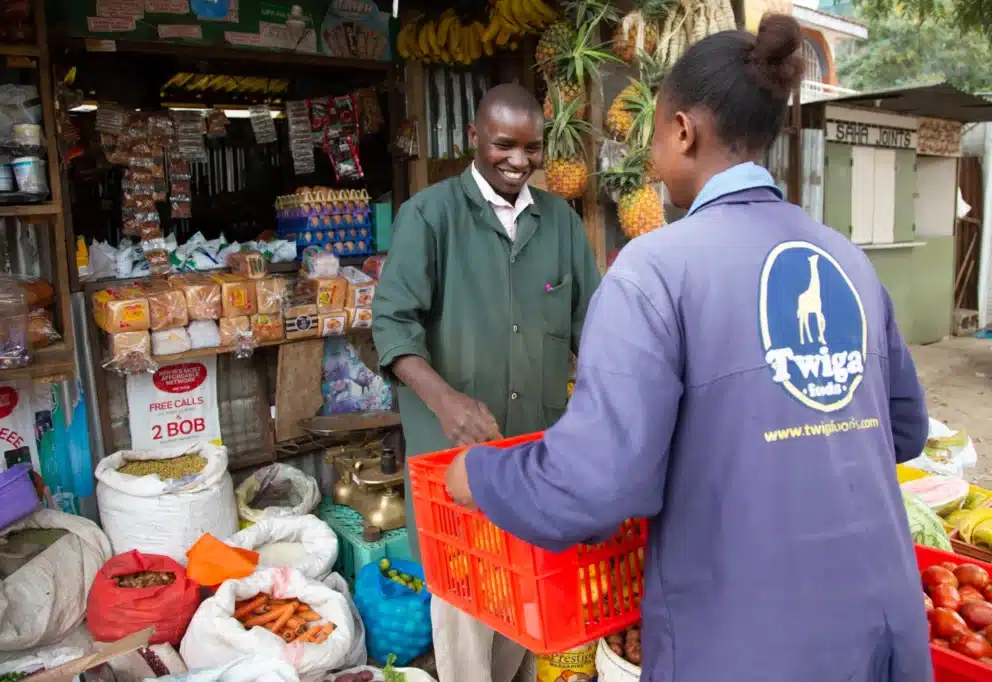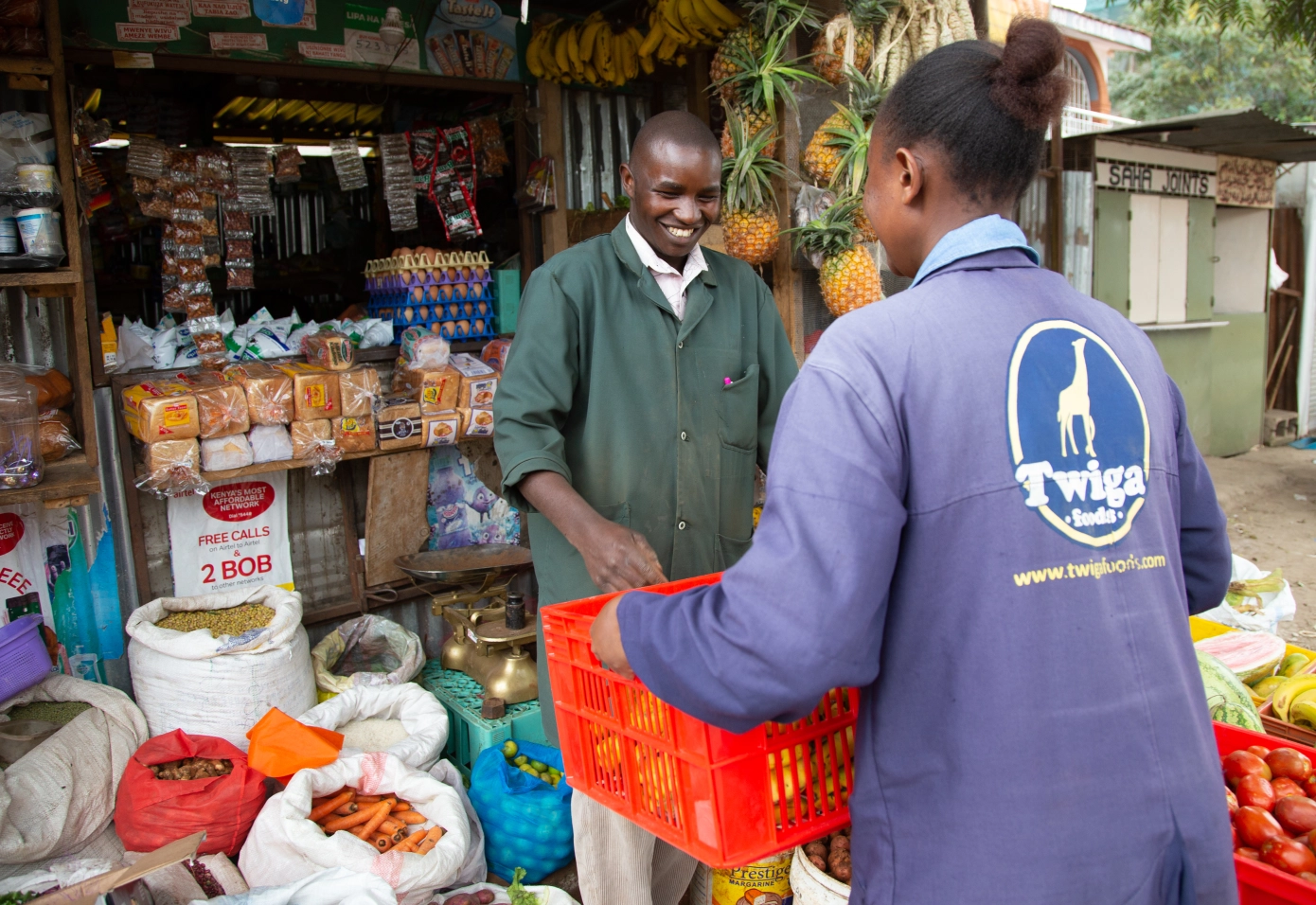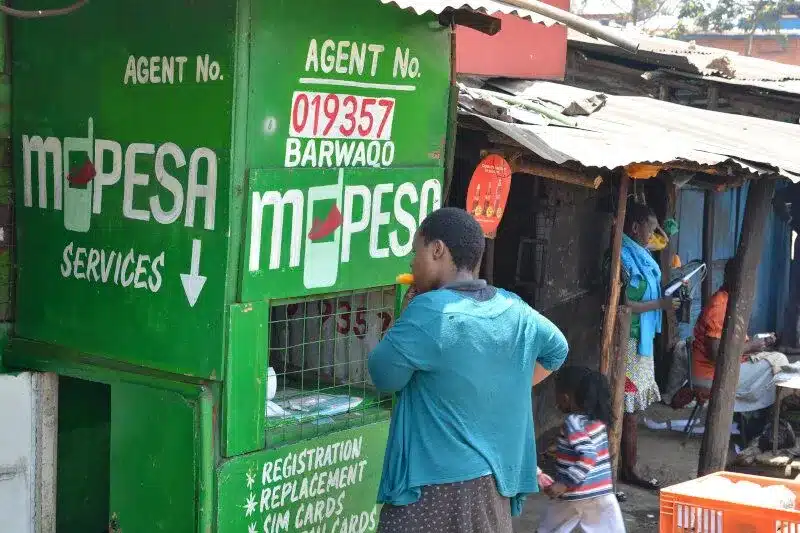Hola,
Victoria from Techpoint here,
Here’s what I’ve got for you today:
- Twiga Foods cuts 300 roleTwiga Foods cuts 300 roles, sets up newcos, sets up newco
- Equity swap may open SA’s doors to Starlink
- Copyright Tribunal slaps Kenyan pay-TV company KSh7.2M
Twiga Foods cuts 300 roles, sets up newco

Kenyan agritech Twiga Foods has quietly set up a new holding entity, internally dubbed “newco,” to pull together its recent acquisitions of three FMCG distributors and overhaul how it runs the show. This shake-up has reportedly led to more than 300 job cuts as Twiga pivots to an asset-light model.
The restructuring first popped up in a leaked internal memo called “Project Easter,” reported by Techish Kenya and TechCabal. According to the document, a small core team of about 10–12 people could move into newco, which will house shared services like logistics, procurement, tech, and finance for Twiga and its subsidiaries. The rest? Marked as redundant in the hunt for efficiency.
Earlier this year, Twiga snapped up majority stakes in Jumra (Nairobi), Sojpar (Kisumu), and Raisons (Mombasa), moves meant to beef up its distribution reach beyond fresh produce. Instead of owning and operating everything, Twiga now plans to feed these partners its software stack while outsourcing day-to-day logistics to third parties.
Of Twiga’s 435 employees, roughly 319 were flagged as “leaving,” with the biggest cuts in supply chain roles (267 positions). Only 83 office or warehouse staff and 33 field workers are set to stay on. A few dozen will probably end up in newco, but sources say that number could shrink to a core group of 10–12.
Twiga insists this isn’t about debt dodging or messy liquidation; it’s all part of “routine corporate realignment” to streamline operations and slash costs. The startup even laid off 59 people back in August 2024, hinting that darker days might still lurk if it can’t prove profitability.
With investors like Juven and Creadev watching its every move (and a $35 million convertible note raised in 2023 still hanging over it), Twiga’s newco strategy is a bid to look leaner and more scalable. Whether this reshuffle fuels the next growth spurt or just trims the fat remains to be seen.
Equity swap may open SA’s doors to Starlink

South Africa’s Communications Minister, Solly Malatsi, says there’s no political pressure behind his new policy direction that could open the door for Starlink and other satellite providers to legally operate in South Africa. This move comes after backlash over a white paper that proposes changes to current black ownership rules in the ICT sector.
The government is now exploring a workaround to the 30% black ownership rule, suggesting that companies like Starlink could instead contribute through equity-equivalent investments, such as funding local infrastructure or black-owned SMEs. However, critics, especially from Parliament’s Communications Committee, aren’t convinced and say the proposal might violate existing laws.
Currently, Starlink can’t operate in South Africa unless it sets up a locally owned company with 30% black ownership. This new plan would allow them to bypass that requirement, but they’d still need to contribute meaningfully to local development and transformation.
Malatsi insists the timing has nothing to do with President Cyril Ramaphosa’s recent trip to the US, where Starlink founder Elon Musk was present. He claims the plan has been in the works since 2024 and is about attracting investment and closing the digital divide, not appeasing any political interest.
The (African National Congress) ANC-led committee, however, is sceptical. They’ve summoned Malatsi to explain himself, arguing the move favours a foreign company over local transformation goals. Still, some within the ANC admit the idea has merit and could be a win-win, especially for small businesses that stand to benefit from these investments.
If the draft becomes official, Malatsi will be able to direct the Independent Communications Authority of South Africa (ICASA) to tweak its licensing rules to accept equity-equivalent investments. But companies still won’t get a free pass. They’ll need to commit to serious local contributions that align with South Africa’s transformation and economic goals.
Copyright Tribunal slaps Kenyan pay-TV company KSh7.2M fine

Kenyan pay-TV company Zuku has been slapped with a KSh7.2 million ($55,800) fine for airing the local film Pwagu without the proper rights, per BusinessDaily.
The Kenya Copyright Tribunal ruled that Zuku showed the movie on its channel without getting the producer’s go-ahead, breaking copyright laws. The producer, James Karanja, spotted the unauthorised broadcast and took action after realising he wasn’t paid or licensed to have the film aired.
Zuku tried to defend itself by saying the film came bundled in a content package from a third-party distributor, but the tribunal wasn’t buying it. They pointed out that Zuku should have done their homework and verified the licensing rights before airing the film. This ruling is a strong message to broadcasters to always double-check content rights, especially for local productions, or face penalties.
This incident puts Zuku under a spotlight when it comes to how it sources and manages its content. The company operates in a competitive pay-TV space dominated by big players like MultiChoice’s DStv and StarTimes, which have a strong foothold across Kenya and the wider East African region. Both DStv and StarTimes offer massive content libraries, including international and local shows, and invest heavily in licensing to keep things above board.
So far, there haven’t been any public copyright disputes of this kind involving DStv or StarTimes, suggesting they may have stricter content acquisition policies. The Zuku fine could push the company to tighten its procedures and avoid potential legal and reputational risks moving forward.
The Kenyan pay-TV market is highly competitive, pushing companies to deliver better content and greater value to viewers, with DStv leading the way. But as this case shows, cutting corners on licensing can backfire. For Zuku, the fine isn’t just about money. It’s a warning to improve and respect local creators, which is crucial in a market where trust and legality matter.
In case you missed it
What I’m watching
- Jordan Peterson vs 20 Atheists | Surrounded
- Signs You Have Rare DNA Mutations (Traits)
Opportunities
- Want to exhibit or attend the Lagos Startup Expo in June? Visit this website here.
- OmniRetail is hiring a Sales Representative for its fashion retail. Apply here.
- Jiji ng is hiring a Merchant Acquisition Association. Apply here.
- M-KOPA is hiring a field auditor. Apply here.
- MTN is recruiting for several roles. Apply here.
- IHS Towers is looking for professionals to fill several roles. Apply here.
- Moniepoint is hiring for several positions. Apply here.
- Kuda is recruiting for several roles. Apply here.
- Stanbic IBTC is looking for a Business Segment: Insurance & Asset Management. Apply here.
- Building a startup can feel isolating, but with Equity Merchants CommunityConnect, you can network with fellow founders, experts, and investors, gaining valuable insights and exclusive resources to help you grow your business. Click here to join.
- Help us make Techpoint better for you! Your feedback shapes what comes next (your responses may potentially save my job. A bit dramatic, but still). It will only take 30 seconds to tell us what works and what doesn’t. Fill it here.
- To pitch your startup or product to a live audience, check out this link.
- Have any fresh products you’d like us to start selling? Check out this link here.
- Follow Techpoint Africa’s WhatsApp channel to stay on top of the latest trends and news in the African tech space here.
Have a productive week!
Victoria Fakiya for Techpoint Africa.











